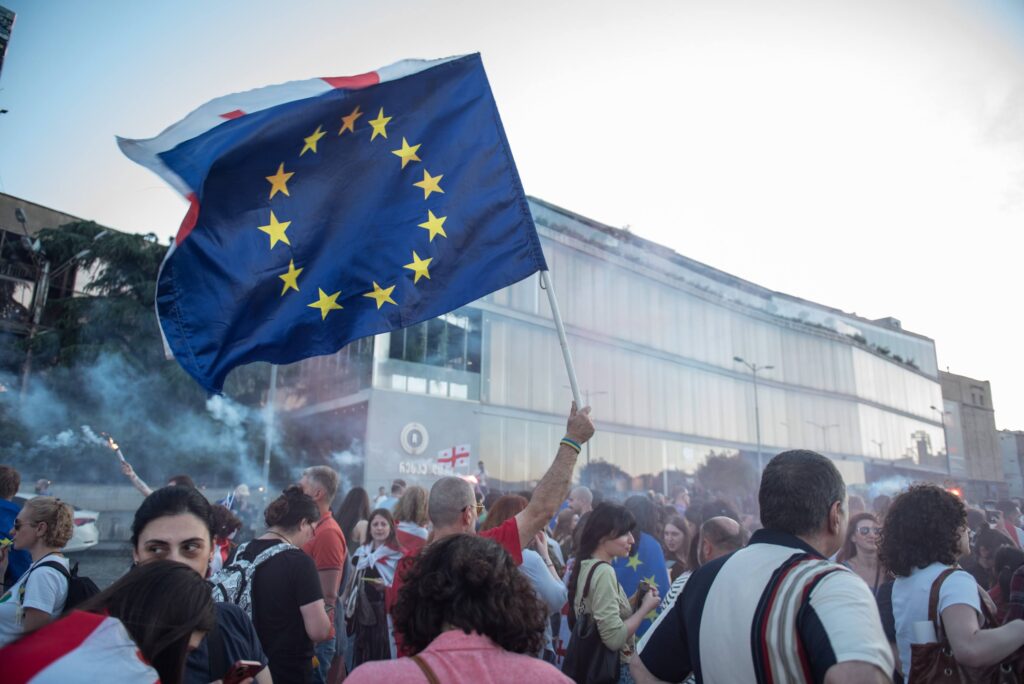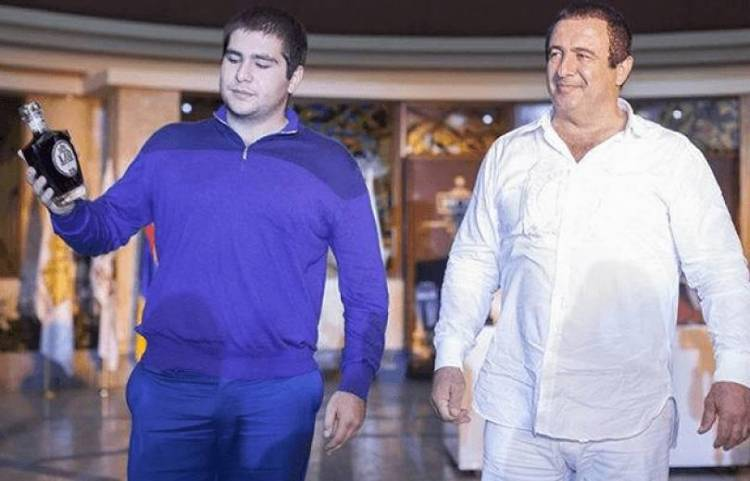European leaders have stated that Georgia’s EU accession is on hold, in their most explicit statement yet regarding the consequences of Georgia’s adoption of the foreign agent law and a wave of political violence targetting government critics.
Friday’s statement came from the European Council, an EU body composed of the heads of member states which is ultimately responsible for deciding key EU policy, including the accession of new members.
The council said Georgia’s ‘current course of action’ had ‘de facto led to a halt’ of its EU accession process.
The conclusions reached by European leaders following a 27–28 June leaders summit in Brussels highlighted the recently adopted Georgian Law on Transparency of Foreign Influence as a ‘backsliding on the steps set out in the Commission’s recommendation for candidate status’.
Last December, the European Council granted Georgia membership candidacy status, after initially denying it due to a lack of institutional and democratic reforms carried out by the government.
In Friday’s statement, the Council called on the Georgian government ‘to clarify their intentions by reversing the current course of action which jeopardises Georgia’s EU path’.
The Council also urged the Georgian authorities to put ‘an end to the increasing acts of intimidation, threats and physical assaults against civil society representatives, political leaders, civil activists, and journalists in Georgia’. It also pledged to closely monitor the upcoming October parliamentary elections and reiterated its ‘unwavering support for Georgia’s territorial integrity’.
[Read on OC Media: Beatings, harassment, and no arrests: Georgian Government critics under attack]
In the run-up to the Brussels summit, Josep Borrel, the EU’s outgoing foreign affairs chief, rejected Georgian Prime Minister Irakli Kobakhidze’s recent claim that the controversial foreign agent law had brought Georgia ‘closer to the European Union’.
‘I want to be clear: No! No! This law and all the negative developments around it are pushing Georgia away from the European Union. I cannot be more clear, more concise’, he said following the 24 June EU Foreign Affairs Council meeting in Luxembourg.
Estonian Prime Minister Kaja Kallas, who has also been a vocal critic of recent steps by the Georgian government, has been tapped as Borrell’s replacement.
The EU’s Foreign Affairs High Representative Josep Borrel has rejected claims by senior Georgian officials that the controversial foreign agent law has brought Georgia ‘closer to the European Union’. pic.twitter.com/AgA49RUUd7
— OC Media (@OCMediaorg) June 25, 2024
The latest high-level EU meetings underscored Georgia’s lag behind Ukraine and Moldova, the other members of the so-called ‘associated trio’ group that saw their accession negotiations greenlit by the EU following Russia’s fullscale invasion of Ukraine.
‘Both countries have demonstrated impressive commitment to reform and alignment with European values’, EU Council President Charles Michel noted on Tuesday.
‘The European Union, through its institutions and Member States, stands ready to support Ukraine and Moldova at each step of this journey. We will provide the necessary resources, expertise, and political support.’
Meanwhile, the EU are actively considering downgrading financial aid to the Georgian government as well as minimising meetings with the Georgian leaders.
Except for the Hungarian ambassador, EU ambassadors as well as the US ambassador reportedly snubbed Friday’s annual address to parliament by Georgian PM Irakli Kobakhidze.
In his speech, Kobakhidze praised the Georgian Dream-led parliamentary majority for passing the foreign agent law and reaffirmed that his government would lead the country to EU membership by 2030.
In the same speech, the PM characterised the EU and the US as in need of ‘de-oligarchisation’, one of the EU’s requirements for Georgia to progress towards membership.
He also vowed to ‘do everything’ to save the West’s public image in Georgia, claiming the EU and US were at risk of being seen as sympathetic to Georgia’s opposition.
‘The Georgian public should not think for a second that the USA and the EU are supporting the collective National Movement those who excelled in 2004–2012 in torturing people, overstaffing prisons, racketeering businesses, highjacking TV stations, losing territories, and so on’.
Georgian Dream has repeatedly used the term ‘collective National Movement’ to conflate the opposition United National Movement party and other pro-Western opposition parties in the country.
Kobakhidze went on to insist that he and his party referred to ‘various representatives’ of the ‘European and American institutions’ as the ‘global party of war’ for the same reason — to save the reputation of the EU and the US among Georgians.




 28 June 2024
28 June 2024



